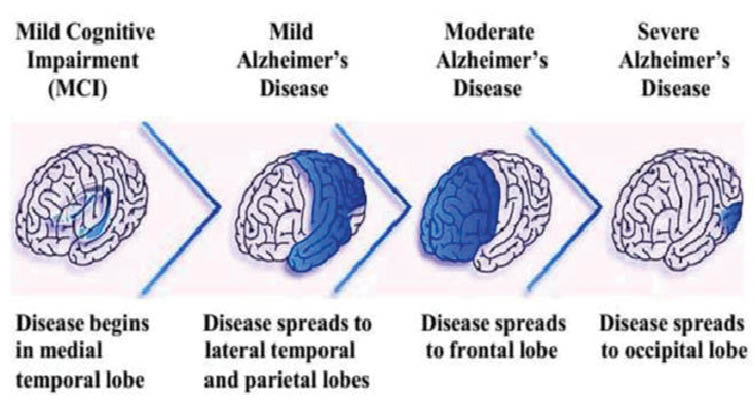How much do we know about Alzheimer’s?
Alzheimer’s Dementia (AD) has been around over 100 years. It remains incurable, and its progression inevitable. That is, once it sets in. Studies about this degenerative disease reported in international journals suffuse headlines and worry the minds of mental health experts. They speak of no current therapy proven to delay the “biological progression of the […]

Alzheimer’s Dementia (AD) has been around over 100 years. It remains incurable, and its progression inevitable. That is, once it sets in.
Studies about this degenerative disease reported in international journals suffuse headlines and worry the minds of mental health experts.
They speak of no current therapy proven to delay the “biological progression of the disease”.
Eight years after Fatai Salawu and co-authors reported this in the Annals of African Medicine, little else has come in the way of research into Alzheimer’s in Nigeria.
Within the same period, researchers have highlighted how Alzheimer’s represents “a major public health problem for developed countries, including the United States.”
“The impact of AD has not been studied as much in developing countries in which the growth of the proportion of elderly persons in the population is even greater than in developed countries,” Adesola Ogunniyi and colleagues wrote in the Journal of the American Medical Association.
Psychiatrists are picking up cases in Nigeria. And mental health facilities like the Lagos-based Retreat Health Centre have listed Alzheimer’s alongside Parkinson’s and unexplained memory symptoms among services they offer for dementia.
But the numbers aren’t close to figures coming from developed countries.
Nigeria doesn’t have as much data as is available in the West, experts say.
More than half the world’s population of elderly live in developing countries. By next year, nearly three in four elderly persons will be in a developing country.
Alzheimer’s accounts for two-thirds of dementia in elderly but is believed to be rare in black Africans. However, but black Americans—of black African heritage—commonly suffer it, researchers have documented.
Two studies so far did not find any Alzheimers in a population of 932 elderly persons above age 65, notes Dr Ada Ikeako, a consultant psychiatrist in private practice.
Called the Indianopolis-Ibadan Dementia Project, the study compared with rates of dementia and Alzheimer’s in two diverse, elderly community dwelling populations—among Yoruba in Ibadan and among African Americans in Indianopolis.
It found rates as low as 1.35% for dementia and 1.15% for Alzheimer’s in Yoruba.
Subsequent studies in sub-Saharan Africa found about 2% incidence, compared with up to 7% in the West. “We still don’t have enough studies, and the ones that were done in Nigeria cannot show an incidence as what is found in the west. We need to do more studies,” says Ikeako.
AD in the Yoruba group in the existing study has been associated with age and gender: elderly and female. “Age was a significant risk factor for AD at both sites,” the researchers wrote in an article published in Metabolic Brain Disease.
“The higher risk of incident AD in the Yoruba female, and in African Americans who resided in rural areas in childhood were similar with the prevalence cases. More studies are required, including biological measurements, to adequately explain the differences in rates.”
Some things about Alzheimer’s are certain. It is a neurological disorder that results when the death of brain cells causes memory loss and decline in cognition. It is also hereditary.
It is the most common cause of dementia. Among nearly 7 million people diagnosed with dementia in the US, 5 million of them have a diagnosis of Alzheimer’s.
Some experts also consider it a psychiatric disease.
“The psychiatric component are the behavioural changes that you can have in Alzheimer’s, paranoia, mood swings, poor decision making, psychosis, anxiety,” says Ikeako.
It is associated with plaques containing beta amyloid forming in the brain. As symptoms worse, it gets more difficult for people to remember recent events, to reason and to recognise people they know. Eventually patients will need full-time care. Which is one reason mental health facilities are laying out services for dementia in rehabilitation homes, and private practices are picking up the trail.
Family reactions—from outrage to resignation—remains uncertain as to accepting a diagnosis of Alzheimer’s.
It comes down to how families treat their loved ones, says Ikeako. Africans have a culture of taking care of their elderly, but more and more ageing people are living alone in villages they call home. And care in such situations may not be optimal.
It is hereditary and common in minorities in the US—among Hispanics and Blacks—but those don’t ordinarily transpose to Nigeria. The sample sizes and number of studies and coverages haven’t justified that just yet, Ikeako explains.
“Age, family history, heart disease, alcohol and drug abuse are risk factors for Alzheimer’s dementia….The point is we need more studies.”
